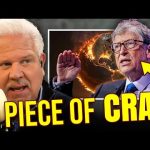The NBA Board of Governors has unanimously approved the sale of a majority interest in the Los Angeles Lakers to Mark Walter, completing what is being reported as the largest purchase in American professional sports history at about a $10 billion valuation. This is the end of an era in purple and gold: a franchise that was family-run for decades has now been handed to a powerful, multi-team owner.
Mark Walter is no stranger to big-money sports ownership — he already controls the Los Angeles Dodgers and has been a Lakers stakeholder since 2021, and he runs the TWG Global/Guggenheim stable of businesses that treat teams like strategic assets. Wealthy men like Walter are perfectly within their rights to buy and manage teams, but Americans should understand this is a cold-blooded business move as much as it is a civic one.
The Buss family, stewards of the Lakers since Jerry Buss bought the team in 1979, will keep a minority stake and Jeanie Buss will remain the team governor and handle day-to-day operations for the foreseeable future. That continuity is welcome, but make no mistake: the family’s controlling voice in Lakers decisions has now been ceded to a billionaire whose priorities may skew toward portfolio returns rather than community legacy.
Conservatives should applaud private investment and the free market that enabled this record valuation, yet we must also be skeptical when mega-owners consolidate power across multiple franchises in one city. When one owner picks up baseball, basketball, women’s basketball, and even motorsports interests, the risk of a few men shaping sports culture and local influence grows — and fans’ interests can be an afterthought.
To give credit where it’s due, Walter has delivered on the business side — the Dodgers have been competitive and deeply invested under his stewardship — which suggests he understands winning drives value and fan engagement. Still, success in one sport doesn’t automatically guarantee the kind of stewardship Lakers fans deserve, and the league’s blessing doesn’t absolve the buyer from answering to the people who pay to fill the seats.
This sale also crystallizes a bitter truth: what Jerry Buss bought for $67.5 million in 1979 has become a $10 billion asset in an era of runaway valuations and private equity-style thinking. There’s nothing illegal about making an enormous profit, but the Lakers are not just another asset — they are a civic institution with generations of loyal followers who expect respect for history and tradition.
Americans who care about hometown pride and civic institutions should demand transparency from the NBA and from owners like Walter. That means clear commitments to keeping the team competitive, investing in the community, and protecting the team’s legacy rather than stripping value for a quick profit. The league and its billionaire owners answer to no one unless we, the fans and citizens, hold them accountable.
The Lakers changing hands is a watershed moment that will test whether private capital can preserve what made the franchise great or will reduce it to a line item on a balance sheet. Proud Lakers fans and patriotic Americans should watch closely, demand accountability, and insist that the team’s heritage — not just its market value — guide the next chapter of Los Angeles basketball.




